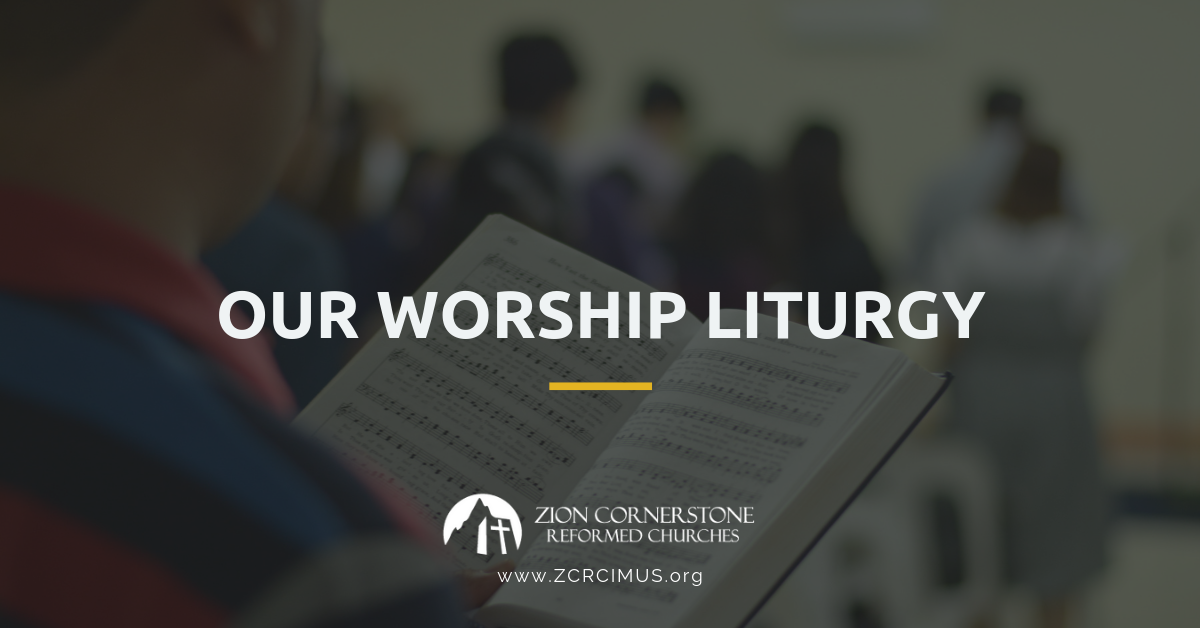If there’s one thing that marks our times today—it’s FEAR. With the still ongoing COVID-19 crisis, people ask, “What if I catch the virus? Is it safe to go out? Will the vaccine work? What will 2021 look like?”
Given the said virus and the mix of political and social confusions, it’s no surprise if we get preoccupied and troubled with these things.
But thankfully, there’s Christmas! And I believe it’s in God’s providence that this season helps keep our heart and mind set on the ultimate things.
In the midst of COVID-19 crisis, there’s greater and more significant news: The birth and coming of Jesus Christ.
The Visitation of God
One of the passages in the Gospel that describes the coming of Jesus Christ as the Messiah is Zechariah’s song in Luke 1:68-79, also known as his Benedictus. Early in his song, he says:
“Blessed be the Lord God of Israel, for he has visited and redeemed his people and has raised up a horn of salvation for us in the house of his servant David” (Luke 1:68-69)
The birth of his son John the Baptist is a sign of God’s covenant promise in the Old Testament finally being fulfilled. That John is the “prophet of the Most High” who will “go before the Lord to prepare his ways,” means the Messiah is about to come.
Zechariah affirms that God “has visited and redeemed his people.” The Greek phrase for “has visited” is episkeptomai which means “to inspect” or “to go to see.”
In the ancient Greek world, kings station armies into different camps across the country or empire. There are military officials or bishops who visit these camps to “inspect” (episkeptomai) the condition of the troops. If the troops are well-prepared, they get a commendation. If not, they get rebuked or demerited.
It’s not a casual visit, but rather involves careful scrutiny of the situation.
For Zechariah, God “goes to see us” in Jesus Christ. He visits the condition and situation of his people. Like the Greek military officials, God’s visitation can mean two things:
- A visitation for punishing wickedness (Exo. 32:34, Deu. 5:9, Isa. 26:14, 29:6), or
- A visitation out of concern and for granting favor (Gen. 50:24, Exo. 4:29-31, 1 Sam. 2:21).
For Zechariah, God’s visitation in Jesus Christ is a visitation of redemption for his people—not of wrath. Jesus made this plain when he said, “God did not send his Son into the world to condemn the world, but in order that the world might be saved through him” (John 3:17).
When the Jews witnessed the works of Christ, “they glorified God, saying, ‘A great prophet has arisen among us!’ and ‘God has visited his people!’” (Luke 7:16).
In the birth of Jesus, God visits his people to fulfill his covenant promise of salvation.
However, although Christ came to redeem, not everyone “loved his appearing.”
Two Responses from People
When the wise men came looking for Christ “who has been born king of the Jews,” the word came to Herod and he “was troubled and all Jerusalem with him” (Matt. 2:3).
The word “troubled” here isn’t a simple anxiety. It terrified Herod. It disturbed him so much that he’d do anything to destroy this child—even to the point of causing a widespread murder of helpless babies (Matt. 2:16).
Herod definitely feared he’d lose his power, wealth and authority. He couldn’t accept that there’s another King other than himself; He didn’t want this Savior to exist at all.
Now contrast his response with the shepherds who heard the angels saying:
“Fear not, for behold, I bring you good news of great joy that will be for all the people. For unto you is born this day in the city of David a Savior, who is Christ the Lord…” (Luke 2:10-11)
After witnessing the angels, these shepherds “went with haste.” And after seeing Jesus in the manger, they “returned, glorifying and praising God for all they had heard and seen” (Luke 2:20). For them, it was indeed a good news of great joy.
Throughout Christ’s earthly ministry, it’s always been these two types of people responding to him. While some believed in Christ and followed him with joy, others despised him, rejected him, and eventually crucified him. And it continued during the ministry of his apostles.
People’s response to Christ has always been between fear and joy, opposition and faith.
Even today, people have different views and responses to Jesus Christ. Many despise the gospel because it exposes their sinfulness and “lowers” their self-esteem. Who would want to hear that we’re all sinners heading to hell unless someone else saves us from God’s wrath?
Although some believe that Christ is “beneficial” for good morals, they fear losing their worldly passions and pleasures for the sake of following Christ. And to the extreme, others blatantly oppose him and persecute the church in the name of their false religions.
But for us to whom God has granted faith in Christ, we treasure his coming as the best news of all time.
We know we’re terrible and lost sinners. We know we deserve God’s wrath. We know we’re hopeless in ourselves. But we know God has shown his great love in Jesus Christ.
For though we lived in unrighteousness, Christ fulfilled all righteousness so we can be declared righteous in God’s sight.
Though we are sinners, Christ died for us and cleansed our sins.
Though we are subject to death, Christ resurrected from the dead to secure for us eternal life.
If Christ didn’t come, we’ll perish with the rest of mankind. The greatness of our sin and the greatness of our salvation in Christ should make us rejoice and be glad in him.
And his first advent is what we celebrate this Christmas. Thank God there’s Christmas!
Now while we remember Christ’s first coming, let’s not forget his return. And like how the people responded to his birth, and how they continue to respond to his gospel today, there will be two types of people when he comes again.
Two Groups of People in the Second Coming of Christ
The book of Revelation proclaims that Christ will return no longer as a baby, nor to die on the cross in the hands of men. He will come in power to gather his people, judge all the nations, and consummate his eternal kingdom.
And here we learn that Christ’s second coming will not just be a troubling news to unrepentant and unbelieving sinners. It will be a fearful experience to them. When Christ returns, John saw in the vision:
“Then the kings of the earth and the great ones and the generals and the rich and the powerful, and everyone, slave and free, hid themselves in the caves and among the rocks of the mountains, calling to the mountains and rocks, “Fall on us and hide us from the face of him who is seated on the throne, and from the wrath of the Lamb, for the great day of their wrath has come, and who can stand?” (Rev. 6:15-17)
They’d rather have the mountains fall on them than see the King’s return! For it will be great judgment upon judgment upon judgment to those who continued to love sin and oppose Christ and his salvation.
So if you’re still opposing Christ now, I appeal to you like the apostle Paul: “Be reconciled to God!” (2 Cor. 5:20). Repent and believe in the gospel, trusting Christ’s righteousness and not your own; his finished work, not your vain efforts. There’s no other way to be saved than through faith in him alone (John 14:6, Acts 4:11-12).
In contrast, Christ’s return will usher in the joyful and glorious experience of the final salvation of God’s children. Those who have their sins washed by the blood of the Lamb will be singing in heaven, “Salvation belongs to our God who sits on the throne, and to the Lamb!” (Rev. 7:10)
“They have washed their robes and made them white in the blood of the Lamb. Therefore they are before the throne of God, and serve him day and night in his temple; and he who sits on the throne will shelter them with his presence. They shall hunger no more, neither thirst anymore; the sun shall not strike them, nor any scorching heat. For the Lamb in the midst of the throne will be their shepherd, and he will guide them to springs of living water, and God will wipe away every tear from their eyes.” (Rev. 7:14-17)
This is the future of believers: An unending joy, peace and comfort in the presence of God and with Christ in heaven.
Is this what you’re longing for?
My brothers and sisters in Christ, while our society today is too occupied with the troubles and fears of COVID-19, don’t let it draw your attention away from what matters most.
This season reminds us of the great news of salvation in the coming of Christ more than 2000 years ago. And even if he’s already reigning in heaven, he continues his work of redemption through his Word and the Holy Spirit.
Always be reminded of the gospel; treasure his Word and his Spirit’s work in you.
And while we remember Christ’s birth this Christmas, remember that he will come again soon. Long for Christ’s second coming, for the final consummation of his kingdom. The world we see today, with its problems and crisis around—it’s not all there is.
We’re still waiting for God’s final visitation.
So in the midst of fears, trials and afflictions today, let us remain in Christ and in the joy of his salvation. Then with all his saints, let us pray, “Maranatha! Come Lord Jesus.”
- Milj Reblandohttps://zcrcimus.org/author/milj-reblando
- Milj Reblandohttps://zcrcimus.org/author/milj-reblando
- Milj Reblandohttps://zcrcimus.org/author/milj-reblando
- Milj Reblandohttps://zcrcimus.org/author/milj-reblando




